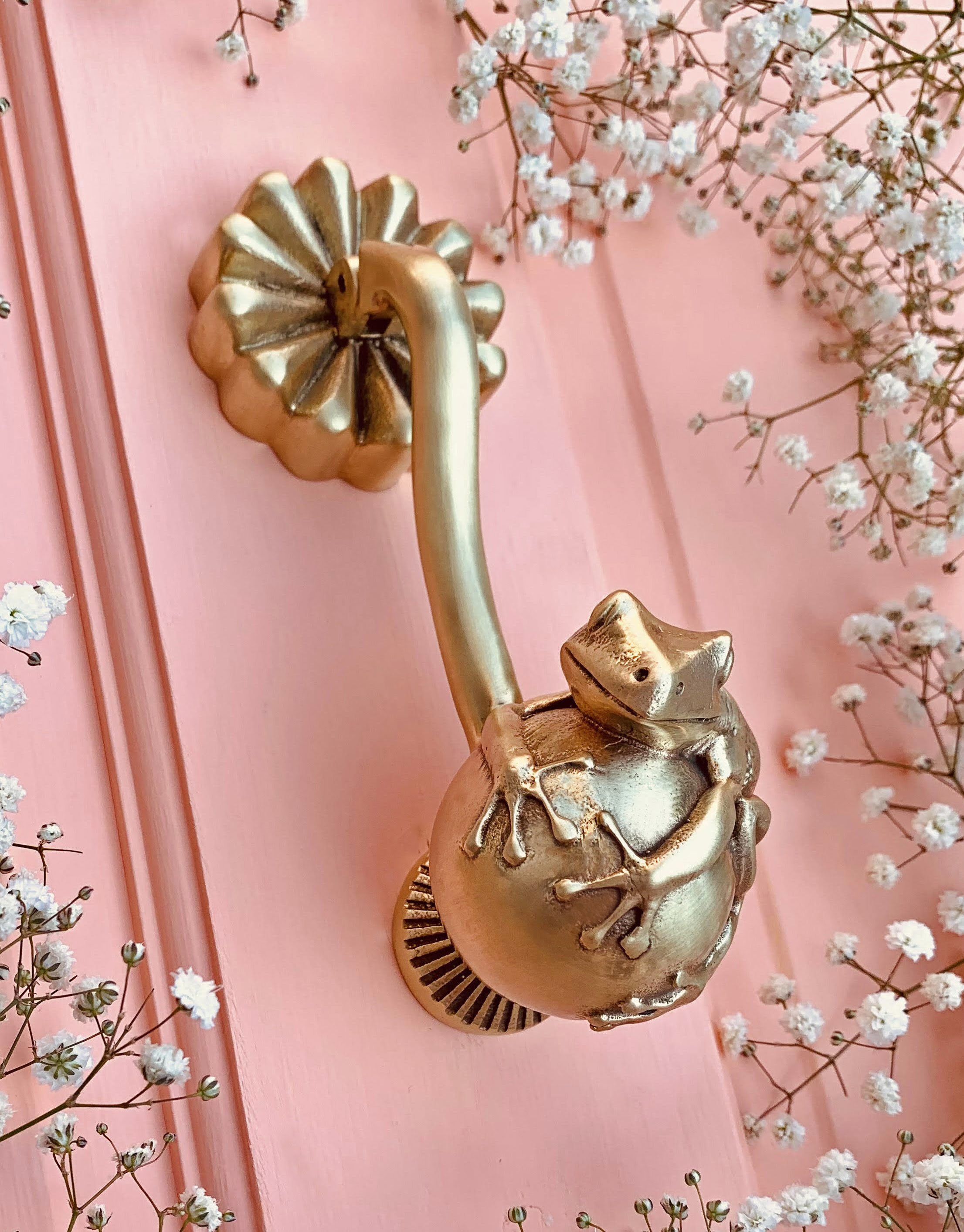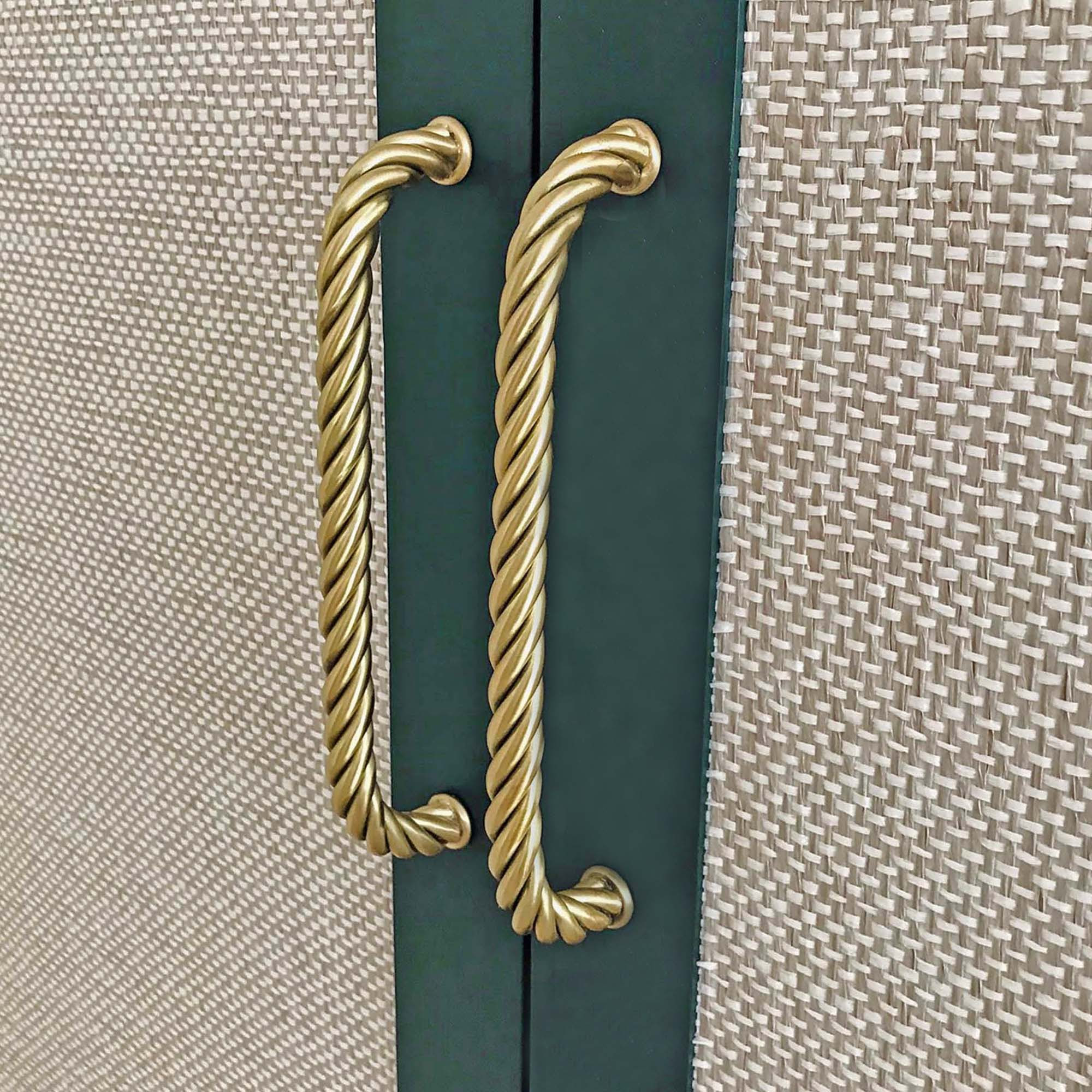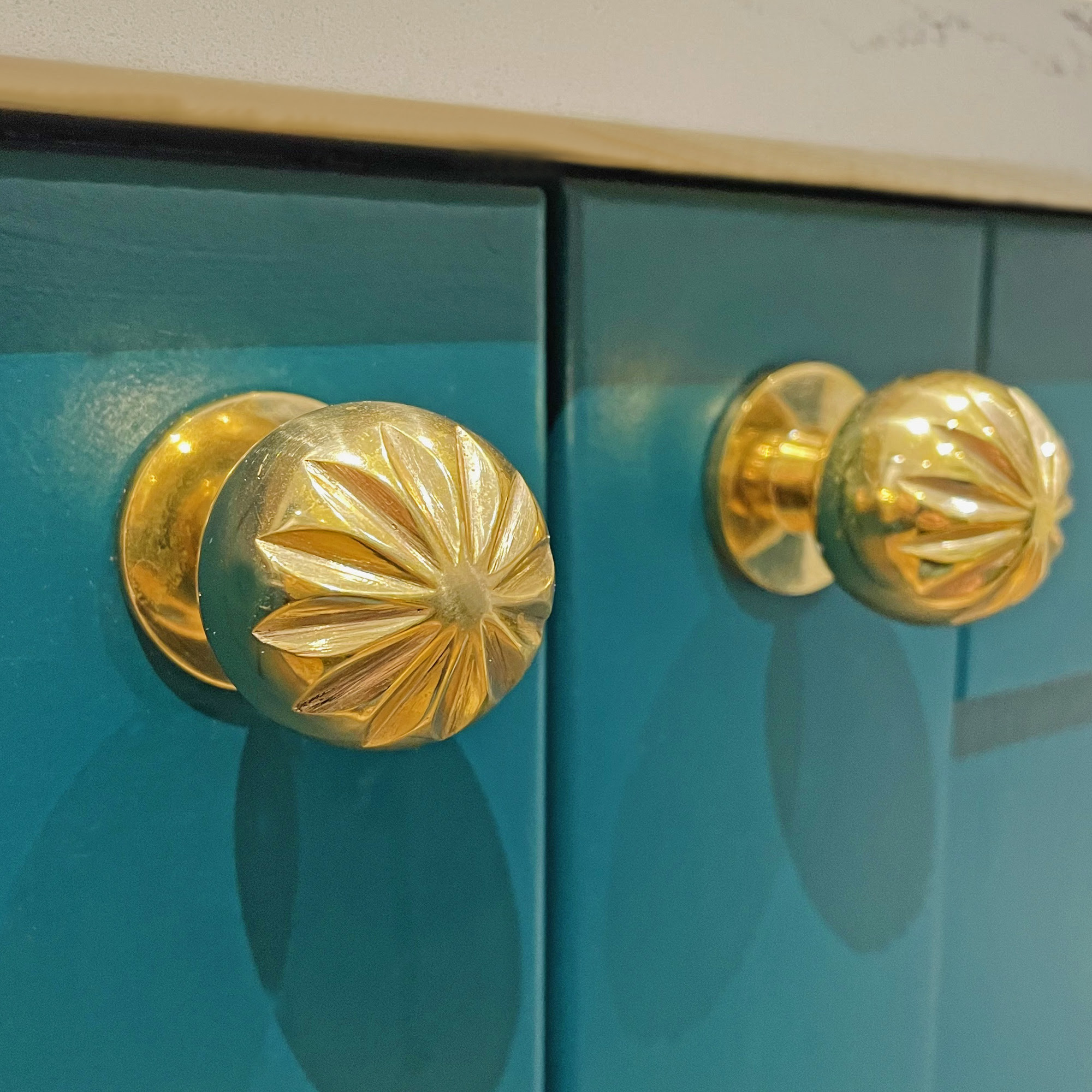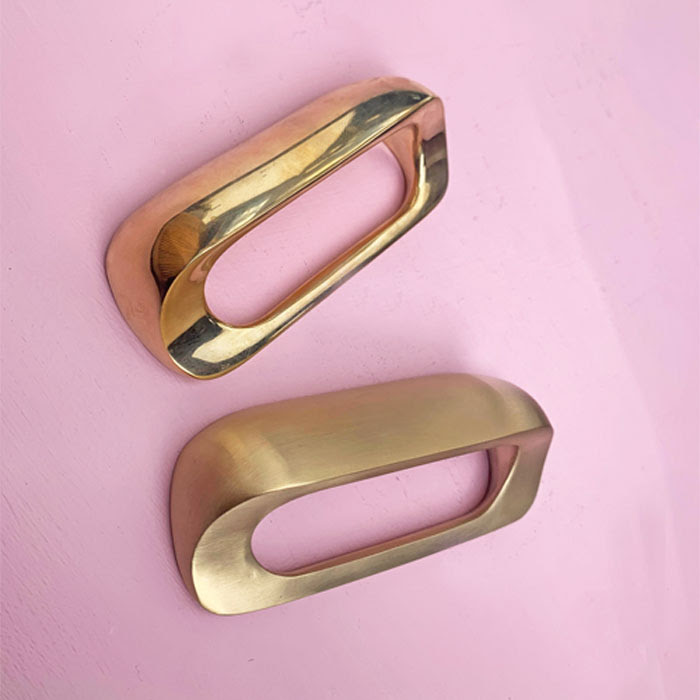Green Directory: Focus on Gipsy Hill Hardware, eco-friendly door furniture
Handcrafted door hardware made from 100% recycled brass made to last a lifetime
It began with a search for the perfect door knocker. “My husband and I were renovating our home and noticed all the hardware is quite samey - either very masculine or modern. It felt like there was a gap in the market for door hardware with more of a design edge and perhaps femininity,” said company founder Rebecca OKeefe. She used her former experience in the fashion industry to sketch an enchanting brass frog door knocker. From that came the spark for Gipsy Hill Hardware.
 Image supplied by Gipsy Hill Hardware
Image supplied by Gipsy Hill Hardware
Today – seven years later - OKeefe works with small foundries using traditional casting techniques to handcraft her collection from solid, recycled brass. Products range from whimsical front door knockers to kitchen cabinet handles and pulls. “It was a jump, a really big jump from fashion,” said OKeefe, who lives with her husband Jamie in an Edwardian terrace home in Gipsy Hill, South London.
What is her design inspiration?
“I love the Victorian era and how much work went into making even the most functional of items beautiful like railings,“ said OKeefe who believes everyday items should give joy. She trawls vintage shops and loves visiting the Victoria and Albert Museum, particularly its jewellery collection, for ideas. Charm bracelets provided inspiration for a heart-shaped door knocker, for instance. “I think that is what is appealing to people – the designs are a bit softer and they have quite a lot of meaning.”
Perhaps surprisingly, her best-selling swallow front door knocker is based on a tattoo. Sailors traditionally had a swallow tattoo for travelling 5,000 nautical miles, reflecting how these birds migrate far from home and back again. “I love tattoos that have a lot of emotion,” said OKeefe, adding that a swallow makes for a “meaningful emblem for a front door.”

Image supplied by Gipsy Hill Hardware
A matching range of hand-cast, solid brass front door hardware is available (knobs, letterboxes, house numbers and letters) as well as kitchen cabinet handles and pulls. There’s a choice of finishes from the raw natural look of unlacquered brass to a more vintage bling vibe of polished brass, powder coated black and nickel plated.
Eco-pledge
 Image supplied by Gipsy Hill Hardware
Image supplied by Gipsy Hill Hardware
Where does her interest in running a sustainable business come from? “I came from a fast fashion background. I used to work as a fashion buyer for Top Shop and Primark and did consultancy.” Cheaply made clothing allows consumers to hop on trends quickly and affordably. But the throwaway culture impacts the environment ranging from water pollution to solid waste. “Like a lot of people who used to work in the fashion industry, I wanted to find a more planet friendly way of doing business,” said OKeefe who spent 15 years in fashion before founding Gipsy Hill Hardware two years ago. “When it comes to a brass door knocker, people only make one considered purchase that will hopefully last forever. That is what I love about I,” said the company owner.
Recycled brass
All Gipsy Hill Hardware products are made from 100% recycled brass, sourced by the foundries. “We use brass for its beauty but also for its durability and resilience,” said OKeefe who loves the weight, yellowish gold look and deep, low sound of a brass door knocker. Brass is also anti-corrosive and antibacterial “making it a perfect metal for a door knocker,” she said.
Brass is a metal alloy, made from a mixture of copper and zinc and sometimes tin. Because of its durability and workability, brass is commonly used in plumbing fixtures and mechanical components in cars. It is one of the most common metals in the scrap metal industry. Brass can be recycled again and again.
 Image supplied by Gipsy Hill Hardware
Image supplied by Gipsy Hill Hardware
How are the Gipsy Hill Hardware products made?
OKeefe freely admits that when she sketched her amphibian door knocker, she knew nothing about the construction of door hardware. The entrepreneur describes the frog as “her baby and her nemesis.” Baby because it was her first creation, nemesis as it was almost her downfall. OKeefe struggled to find a foundry with the skills to hand-cast the intricate amphibian. “If I had known anything about foundries and casting, I would never have designed that door knocker. It’s really tricky to make.”
Eventually she did find a small foundry in the UK where a craftsman (just one) still used a traditional ‘lost wax’ process. This is a method of metal casting in which molten metal is poured into a wax mould. “It’s a specialist technique used to make metal sculptures. There aren’t many people in the UK who still do this,” said OKeefe.
The rest of her hand-casted brass hardware is created by an ages-old ‘sandcasting’ technique. This involves filling a mould with compressed sand. Separately, a small mould has been created of the same shape as the final product. This is pressed down into the sand mould, leaving a cavity. The molten metal is poured into the cavity and then cooled.
Transportation
When she founded Gipsy Hill Hardware, OKeefe wanted everything to be made in the UK to limit transportation of goods – and carbon emissions. However, to keep up with demand for her products, she had to look abroad. OKeefe explains: “We use two small foundries in the UK and we’ve just started using one in India because it’s really hard to find people here with the traditional skills.” The UK foundries struggle to find apprentices to teach.
“I think having a craft and being able to make things with your hands is a really cool thing to do. I keep offering myself as an apprentice, but they keep saying no.” Her partner foundry in India, a small family run company, is expert in different techniques, allowing her to “push the boundaries of products” she can develop. All three foundries have been “brilliant,” says OKeefe.
Gipsy Hill Hardware is championing a low waste approach to manufacturing by producing recycled brass hardware in small batches. By producing just what has been ordered, “it’s possible to avoid excess and the impact of it on the planet,” said OKeefe.

Image supplied by Gipsy Hill Hardware
Green packaging
The packaging has been carefully chosen to ensure it’s fully recyclable or biodegradable. All the products are packed in recycled cardboard boxes which are filled with biodegradable packing peanuts. These packing peanuts are made from corn starch that dissolve in water and can be thrown into compost after single use.
What are her future plans? “To take Gipsy Hill Hardware through the front door to inside the house,” said OKeefe who plans to extend her range of kitchen cabinet handles and hooks. For design inspiration to create a perfect front door see www.gipsyhillhardware.com. Videos are also posted on Tik Tok –tag is US @ghhardware
Thanks to Gipsy Hill Hardware for their help with this article.
